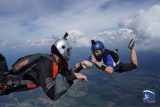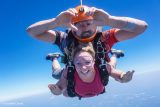Can You Skydive on Your Period?
Skydiving
1 year ago
Skydiving is known as one of the most exhilarating adventures that one could experience in their lifetime. However, for women, there may be some considerations to be made when it comes to skydiving, especially when it’s that special time of the month. In this article, we’ll explore the effects of skydiving on your period, the benefits it may bring, and touch on other aspects of women’s health in relation to skydiving.
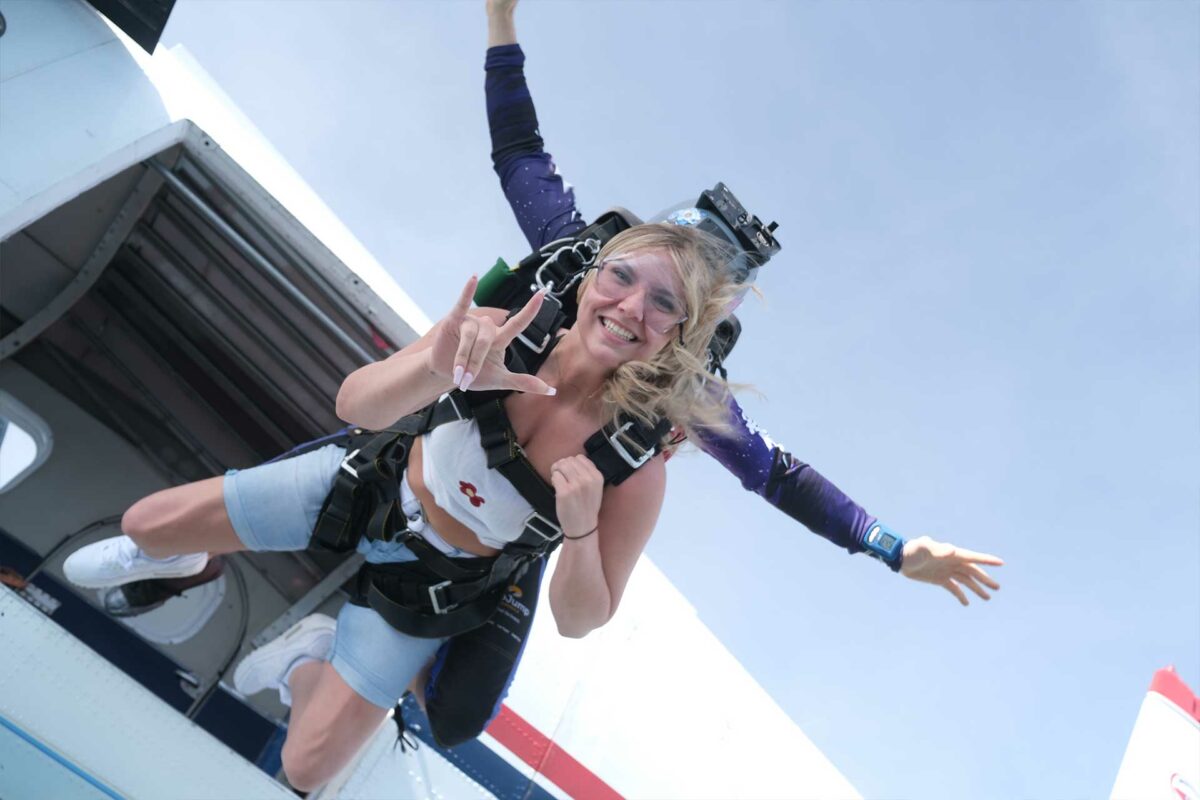
Can You Skydive on Your Period?
Yes, you can absolutely skydive while on your period and there are actually some great benefits of skydiving on your period.
How can skydiving affect your period? The physical stress and excitement of skydiving is a common concern for women when contemplating how skydiving might impact their menstrual cycle. While there is limited scientific research on this specific topic, anecdotal evidence suggests that some women may experience changes in their menstrual cycle due to intense physical activities (including skydiving) called exercise amenorrhea. This is usually for women who partake in regular intense physical activity. The body’s stress response, triggered by the thrill of freefall, has the ability to influence hormone levels such as the stress hormone, cortisol. Cortisol plays a role in regulating the menstrual cycle. Consequently, some women may notice temporary variations in their menstrual flow or timing after engaging in tense physical activities like skydiving.
What are the benefits of skydiving while on your period? Interestingly enough, some women have reported that the adrenaline rush and excitement of skydiving can actually provide relief from the pain and discomfort of menstrual cramps. The adrenaline and endorphin release associated with skydiving can act as a natural pain reliever. Engaging in thrilling activities like skydiving may offer a welcome distraction from the physical and emotional challenges often associated with menstruation. Moreover, the sense of accomplishment and empowerment that comes with conquering a fear of trying something new can positively impact your overall mood and well-being. Skydiving has been a huge confidence booster, helping women feel more in tune with their bodies and reminding them of the strength within their body, mind, and soul!
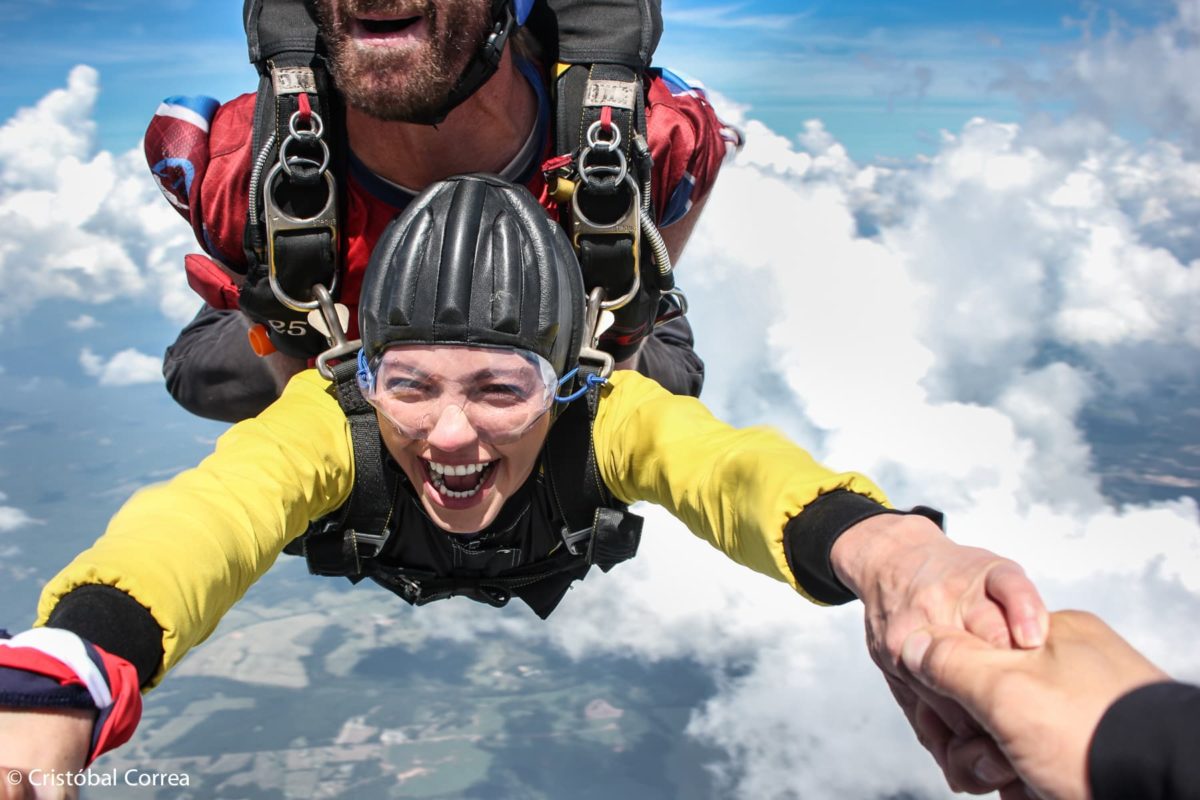
Can You Skydive While Pregnant?
If you ask your doctor if you can go skydiving while pregnant, the answer will most likely be a hard “no” – mostly because your doctor is going to play it as safe as possible and would never approve an activity that has inherent risks associated with it.
Technically, you can skydive while pregnant and some (experienced) women do! However, people are strongly discouraged from skydiving while pregnant, especially for first-time or novice skydivers. For those licensed skydivers who are willing to take on skydiving while pregnant, there are a few risks to be considered:
- Increased Risk of Injury and Discomfort: As most know, pregnancy can bring about nausea and vomiting, especially in the first 6 to 12 weeks of pregnancy. Being in a small airplane, jumping out of one, and spinning around in circles while under canopy could be uncomfortable for a pregnant person. Not to mention, joints and muscles tend to soften up during pregnancy which could increase the risk of musculoskeletal injuries.
- Increased Risk of Miscarriage: Technically, there is very little known about the specific risks involved in skydiving while pregnant. Prospective risks to carefully consider include:
- Impact Trauma: The greatest risk from skydiving while pregnant is the potential trauma during the parachute opening. When the parachute is deployed, you’ll go from a fall rate of 120 mph to 17-21 mph. In the case of a hard parachute opening or hard landing, there is potential of placental abruption, uterine or fetal injury.
- Hypoxia: Hypoxia, or oxygen deficiency, from high altitude exposure (anything above 8,000 feet) can increase the rates of complications and miscarriage if exposed over a long period. On a skydive, the plane ride to altitude usually lasts anywhere from 15 to 20 minutes, so the effects of this type of altitude exposure is likely to be insignificant.
- Environmental Heat: Skydiving can get pretty hot, especially in an airplane. Core body temperatures above 103° F are known to affect neural tube development and increase the risk of fetal abnormalities. Stay cool and hydrated!
The choice to skydive while pregnant is a very personal one. We recommend speaking with your doctor and your family before deciding to skydive with a bun in the oven.
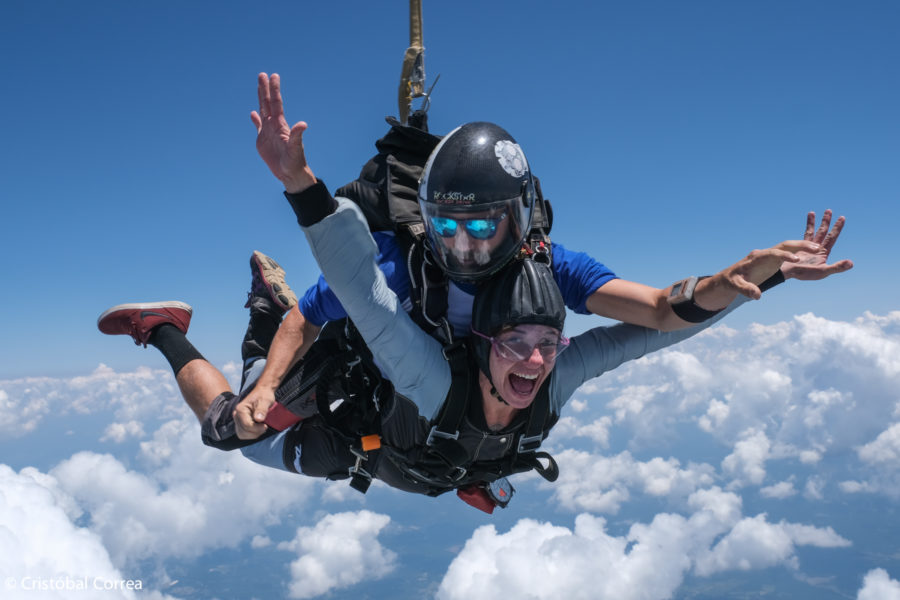
Can You Skydive with Breast Implants?
Skydiving with breast implants is a normal concern, especially when you notice that the skydiving harness goes directly across your chest. However, according to Dr. Ted Eisenberg, a renowned plastic surgeon, women can generally partake in extreme activities like skydiving or scuba diving three months after getting breast implants.
The silicone shell of the implants can be remarkably tough and withstand forceful impacts. However, the strength of these implants does not last forever. As implants age, there is a greater potential for weakening of the silicone shell which could cause potential leaking or bursting of the implant from a forceful impact. This would require a surgery in order to remove or replace the damaged implant.
If you live a very active lifestyle, you can discuss this with your plastic surgeon before your surgery to see if they recommend special placement of the implant to protect them a bit more from potential damage, such as beneath the chest muscle.
Women’s Health and Empowerment in Skydiving
While considerations like menstrual cycles, pregnancies, and breast implants may prompt questions, with good information and suggestions from trustworthy individuals, women can make informed decisions about engaging in skydiving.
Skydiving can be a powerful tool for promoting self-confidence, resilience, and female empowerment. Advocacy groups such as the Women’s Skydiving Network (WSN) and Project 19 actively promote and inspire women to live boldly. These communities offer a platform for sharing experiences, providing guidance, and fostering a supportive environment for women in skydiving.
If you’re a woman considering skydiving or have questions about the compatibility of skydiving with your health, please consult with a healthcare professional and maybe even reach out to some experienced skydivers. If you decide to make a skydive, book your jump with Skydive Carolina! We’re here to support you. Blue skies!


